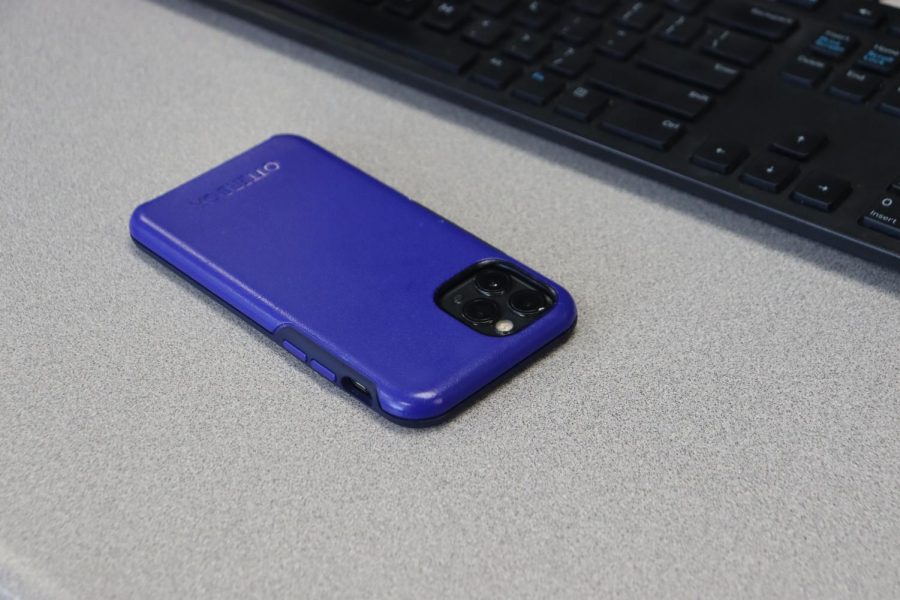Big precautions, small problem
Why students should be allowed to have their phones in class
Phones have become a huge problem in schools, but it almost seems like instead of allowing a new learning opportunity for both students and teachers, it has instantly become shut down and seen as the biggest distraction for schools. Allowing students to hold onto their phones makes them learn self control, and would help them learn valuable skills before they go out into the real world. Photo by Logan Moseley.
May 9, 2023
If there is one thing that practically all adults can agree on nowadays, it’s that our generation is on their phones too much. On average, an American teenager spends around seven and a half hours on their phone every day. That is a problem, but taking students’ phones at the start of class doesn’t help the problem.
Now in no way am I advocating for students to defy their teachers and be on their phones during a lesson, that is not a good idea at all. But putting phones up in a phone chart doesn’t do anything productive. In my current classes, two teachers don’t utilize the phone organizations provided to a teacher, one does not make it a priority to put our phones in a pocket chart or box, and the other uses phones as a way of tracking attendance, but from my knowledge has always done that since before Millard tried to do anything about phones.
Not only has it been a waste of money, it is also a waste of time for the teachers that do ask to put phones away. If it takes about five seconds to ask any student who hasn’t put their phone away, with an estimation of one minute and thirty seconds to put their phone away and get back in their seats, that is a total loss of just around an hour, or one class period, per semester. For a class like Physics or any Advanced Placement class, missing out on two days worth of content over telling a student to put their phone in something other than their pocket or in their backpack seems counterintuitive.
But the biggest reason students should be allowed to hold onto their phones throughout the day is the purpose of school; to prepare students for success in the real world. In a perfect world school is not about getting good grades, but creating an environment where students learn how to create success. You can ask anyone, phones have become a critical part of our society.
Many students know from jobs they have right now that there are no regulations on where your phone goes before you clock into work. At my own job I use my phone every day. Sometimes it’s using a calculator, other times it’s to use an app to locate a product. There are some jobs where you have to be on your phone in order to succeed.
For NBA reporter Shams Charania, he recently revealed that he averages just around 17 hours a day on his phone, with at some points in the season climbing as high as 20 hours a day.
Perhaps the most important benefit that could come from a higher tolerance of phones is self control. Once a student graduates and gets that entry level job for their dream career, they will have to learn how to control their distractions. You will have your phone when you know you shouldn’t be on it. You will have to control yourself. So why not let students learn now. Let them make the mistakes now, so they can learn how to control their distractions and not mess up their dreams later.







